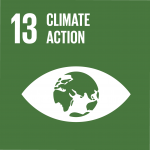Adaptation and mitigation should go hand-in-hand and be locally-led

Development partners will work closely with Bangladesh on climate change adaptation
The Ministry of Environment, Forest and Climate Change (MoEFCC) and UNDP jointly organised a virtual consultation workshop on 31 August 2021 to update the development partners on the Formulation and Advancement of the National Adaptation Plan (NAP) in Bangladesh. The participants expressed their views and opinions on the preparation of a comprehensive and inclusive NAP.
Welcoming the participants Mr Mirza Shawkat Ali, Director (Climate Change), DoE and Deputy National Project Director, NAP Formulation Project said, “The NAP is going to be one of the most important policy documents in combating the climate change impacts on economic sectors, lives and livelihoods of the affected population.” “Hence, all the stakeholders from the vulnerable communities on the ground through the government to the development partners should be closely involved in the formulation process”, he added.
While delivering the keynote presentation, Professor Dr Ainun Nishat, Lead Consultant of the NAP Formulation team led by the Center for Environmental and Geographic Information Services (CEGIS) informed that the consultation process has been taking place in three tiers – the national, regional and local levels.
Taking part in the discussion Ms Paula Schindeler said, “The Netherlands is very much active in the field of climate change adaptation in the sense that the country has been a long partner when it comes to supporting the creation and implementation of the Delta Plan 2021.” Considering different dimensions of the plan, she wanted to know how the Delta Plan could be an action path of NAP.
Replying to a question about UK’s assistance, the Climate & Environment Advisor, British High Commission Ms Anna Balance said, “The UK government will support Bangladesh’s adaptation effort very much so.” “there has been a proposed programme that has been sent to the UK minister for possible consideration which will look into adaptation and environmental management.” She added.
Ms Cornie Henchoz Pignani, Embassy of Switzerland informed that her country would spend around US$ 400 million globally for climate change adaptation and mitigation. Here in Bangladesh, climate change adaptation and mitigation is a key area of engagement and her country is working with the EU and the US to strategise ways of engagement on this critically important issue.
Commenting on the broad spectrum of climate change adaptation and mitigation Mr Dario Trombetta, Programme Manager, Delegation of the European Union informed the consultation that the EU is now working on green energy transition from transmission to distribution to consumption at the mitigation level. At the adaptation level, the EU is looking into scaling up adaptation through the Green Climate Fund.
“The USA will come up with a new climate change strategy before the COP 26 in November this year and adaptation will be one of the key priorities there.”, said Mr Keith Metzner, USAID Bangladesh.
The Special Guest Mr Sanjay Kumar Bhowmik, Joint Secretary, MoEFCC said, “Bangladesh is doing well in adaptation”. He concluded that NAP is being formulated aligning with all the existing climate-related policy and planning documents of the country to make it seamlessly aligned with the national budget setting process and easily implementable.
The Chief Guest Mr Md. Mizanul Hoque Chowdhury, Additional Secretary, Climate Change Wing, MoEFCC, and National Project Director of the NAP Formulation project concluded, “NAP should be a vehicle for mainstreaming climate-smart development.” He expressed his high hopes that Bangladesh would be able to formulate NAP in time despite the fallouts of the COVID-19 pandemic.
Considering NAP as a guiding document for mobilising internal and external resources for climate change adaptation, Mr S M Mahbub Alam, Deputy Secretary (UN-V), Economic Relations Division Deputy National Project Director, NAP Formulation project requested the development partners to persuade respective capitals and head offices to come forward and fiance NAP.
The moderator of the session Mr Arif M Faisal, Programme Specialist, UNDP said, “In the a broader perspective, NAP is necessary to sustain the economy and to achieve our aspiration of becoming a middle-income country and that NAP should be an inclusive, participatory and country-driven process”.
The NAP has been gathering and analysing data and information using scientific tools, developing risk scenarios, generating experience and science-based adaptation strategies in line with Bangladesh’s priorities outlined in the SDG, Delta Plan 2100, Perspective plan, five-year plans and its ambition to graduate from a Least Developed Country to a middle-income country. It will allow Bangladesh to identify country-specific adaptation needs; develop and implement strategies to address the adaptation needs, as well as help the country decide on actions to protect the most vulnerable communities. The Department of Environment is executing the project with financial support from the Green Climate Fund having UNDP as the implementing partner.
Participants of the consultation underscored the need for stronger integration of local governments into the NAP process, establish stronger mechanisms for smoother inter-ministry coordination, align multilevel policy at all levels of the government and enhanced knowledge on adaptation process at the local and national levels.
More than fifty representatives from different government ministries, development partners including the European Union (EU), Foreign, Commonwealth & Development Office (FCDO)-the UK, Asian Development Bank (ADB), World Bank (WB), The United States Agency for International Development (USAID), United Nations Children's Fund (UNICEF), United Nations Entity for Gender Equality and the Empowerment of Women (UNWOMEN), German Corporation for International Cooperation (GIZ), Embassy of the Kingdom of Netherlands, Embassy of Switzerland, Japan International Cooperation Agency (JICA) and United Nations Development Programme (UNDP) attended the consultation.
For Further Details:
Arif Mohammad Faisal, Programme Specialist, Environment & Energy, UNDP, Cell: 01824804742; Email: arif.faisal@undp.org
Meer Ahsan Habib, CCA Communication Specialist Cell: 01713244341 Email: meer.riyadh@gmail.com - Formulation and Advancement of the National Adaptation Plan (NAP) Process, UNDP.
